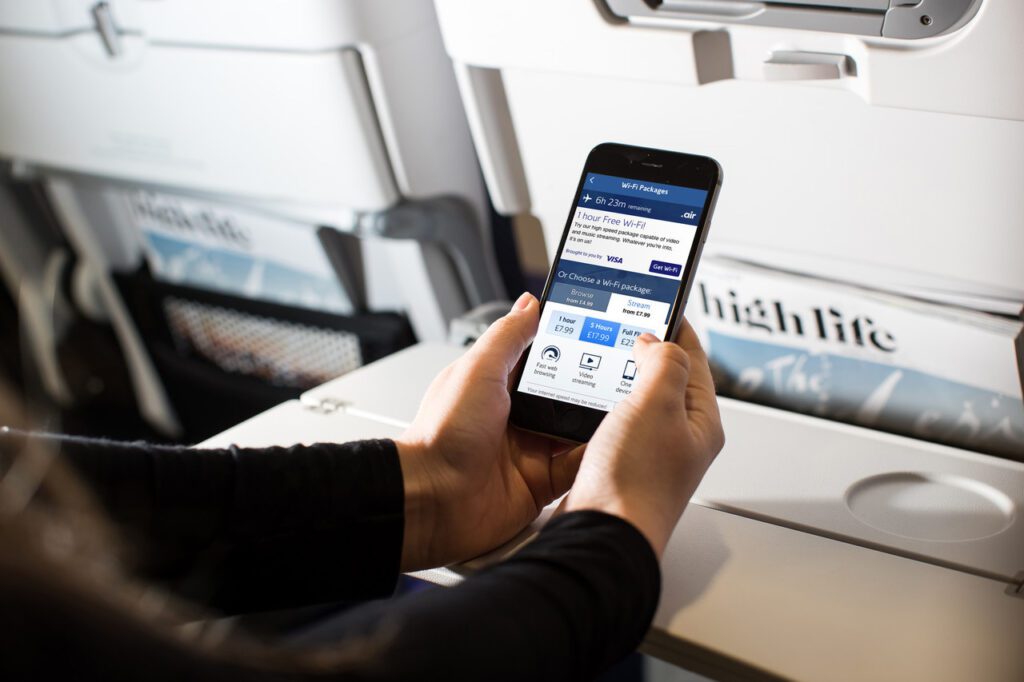UK Regulatory Authority Says Viasat/Inmarsat Merger Could Hurt In-flight Connectivity Competition


(Photo: Nick Morrish/British Airways)
The United Kingdom’s Competition and Markets Authority(CMA) could soon refer Viasat’s pending Inmarsat acquisition to a deeper investigation due to how it might lessen competitiveness in the in-flight connectivity (IFC) market in the U.K. The CMA released results of its phase one investigation on Thursday.
“This is an evolving market, but the merging companies are currently two of the key players – and it remains uncertain whether the next generation of satellite operators will be able to compete against them effectively,” commented CMA Senior Director Colin Raftery. “Ultimately, airlines could be faced with a worse deal because of this merger, which could have knock-on effects for U.K. consumers as in-flight connectivity becomes more widespread.”
Viasat and Inmarsat have five working days to submit proposals to address the authority’s concerns. The CMA will then decide whether to move to an in-depth phase two investigation.
CMA’s phase one investigation focused on the competitive landscape of IFC services to commercial airlines flying from/to and within Europe, which are most likely to impact U.K. consumers. Viasat and Inmarsat participated in the investigation, which also included public comments and information from third parties.
CMA’s assessment was that Viasat and Inmarsat are the strongest IFC providers at this point and would be strong competitors without the merger. The operators have different areas of coverage with their satellites but soon will both have near-global coverage.
The authority had a stark assessment of the current IFC competition: “Panasonic … is in decline, due to its reliance on capacity from third-party satellite network operators and airlines’ perception that it is expensive and offers old technology. Anuvu competes only for short-haul flights and is considered a weak option by airlines; and Intelsat occupies a modest position in the market and it is uncertain how it will develop in the future.”
The report was also critical of the potential for new Non-Geostationary (NGSO) competitors like OneWeb and SpaceX, which recently announced a deal to serve Hawaiian Airlines with Starlink. The U.K. government is a shareholder OneWeb, which is in the midst of its own deal to combine with GEO operator Eutelsat, a deal the U.K. government supports.
It will take time for NGSOs to be able to compete with Viasat and Inmarsat on IFC, CMA argued, with hurdles like obtaining aircraft model certification and national licenses, and scaling technology and support networks. A combined Viasat and Inmarsat company could lock in much of the customer base with technology installed on aircraft before NGSOs are competitive.
“NGSOs still face many financial, operational, technical, regulatory, and commercial barriers before they can supply IFC services on board aircraft. Although NGSOs have significant financial backing, a number of the barriers to entry are complex technical and regulatory requirements that cannot be overcome through financing alone,” the report said.
Viasat and Inmarsat responded to the report in a statement, and said a phase two review is not unexpected. Viasat CEO Mark Dankberg noted that IFC revenue represents less than 10% of the revenues of the combined company.
“This is still a nascent, dynamic, and rapidly evolving business, with existing providers and extremely well-financed new entrants bringing new technologies and new business models to increase adoption among airlines, passengers, and aircraft types. We intend to work closely with the CMA to show that our transaction will benefit customers by improving efficiencies, lowering costs, and increasing IFC availability around the world,” Dankberg said.
Inmarsat CEO Rajeev Suri commented that there is no shortage of competition in the IFC market and new LEO players are “aggressively and successfully targeting aviation.”
Vista and Inmarsat said they remain committed to working with the CMA. The proposed transaction recently received approval from the U.K. government in terms of the National Security and Investment Act.
The post UK Regulatory Authority Says Viasat/Inmarsat Merger Could Hurt In-flight Connectivity Competition appeared first on Avionics International.
—————
Boost Internet Speed–
Free Business Hosting–
Free Email Account–
Dropcatch–
Free Secure Email–
Secure Email–
Cheap VOIP Calls–
Free Hosting–
Boost Inflight Wifi–
Premium Domains–
Free Domains





